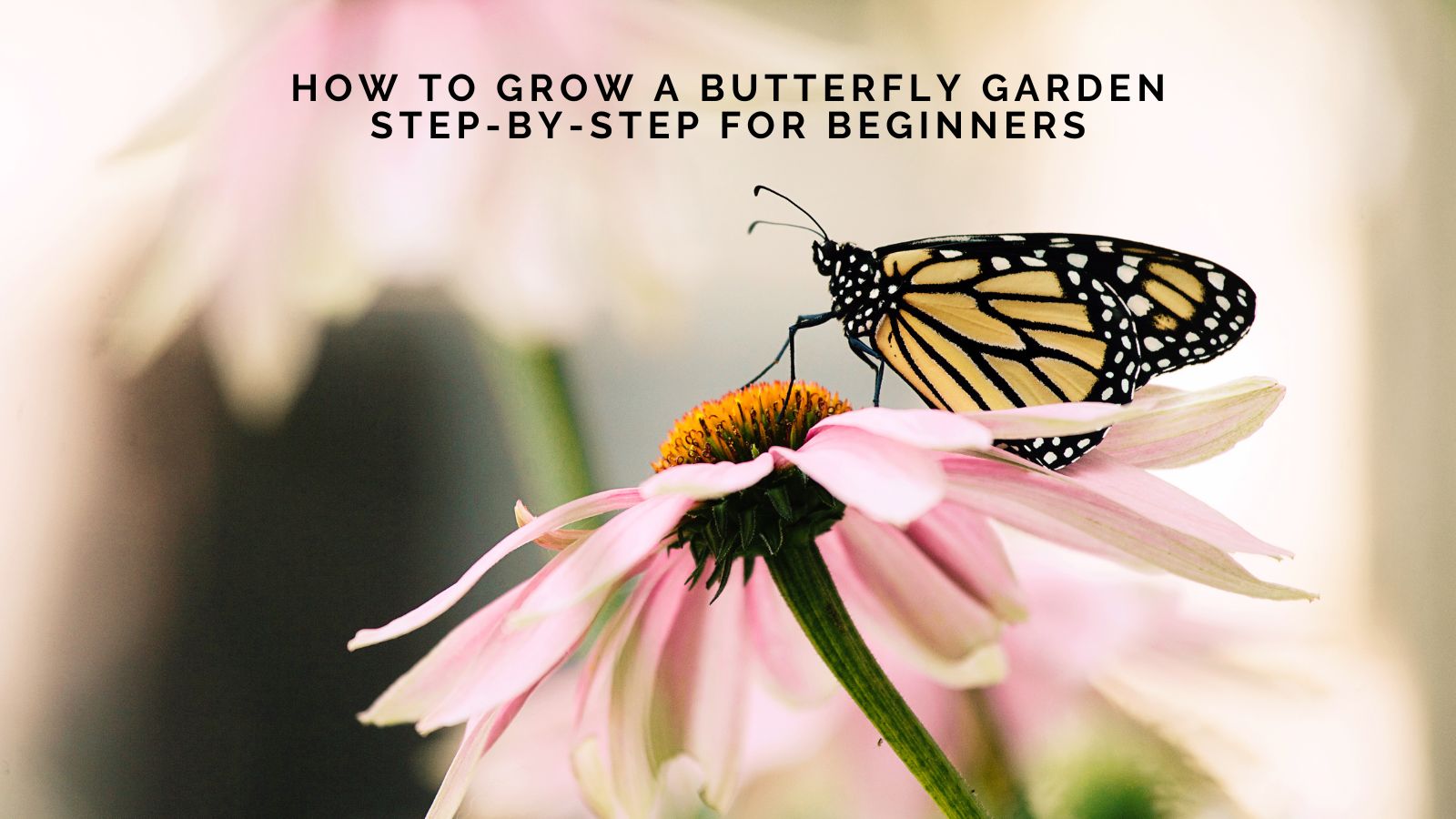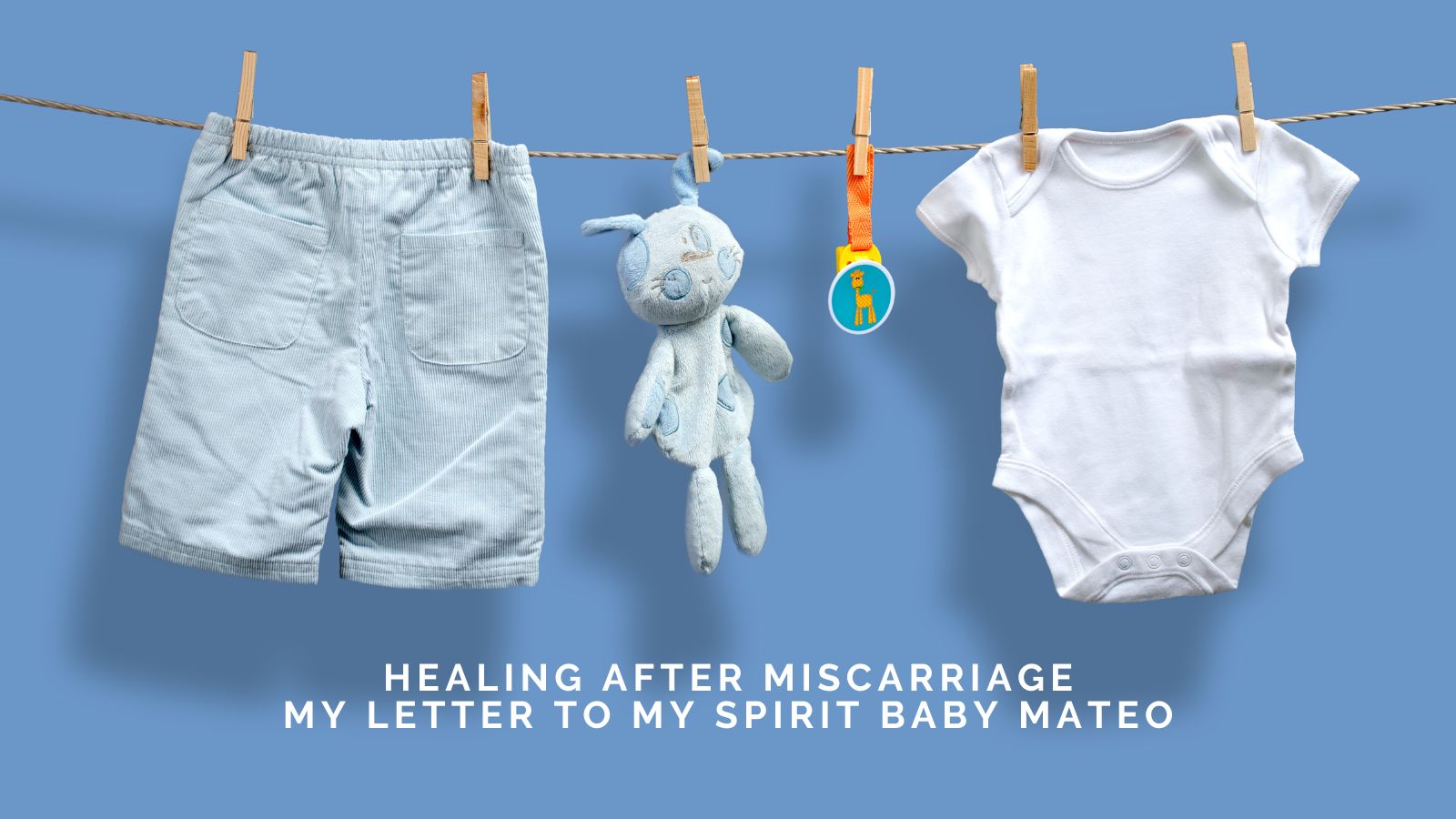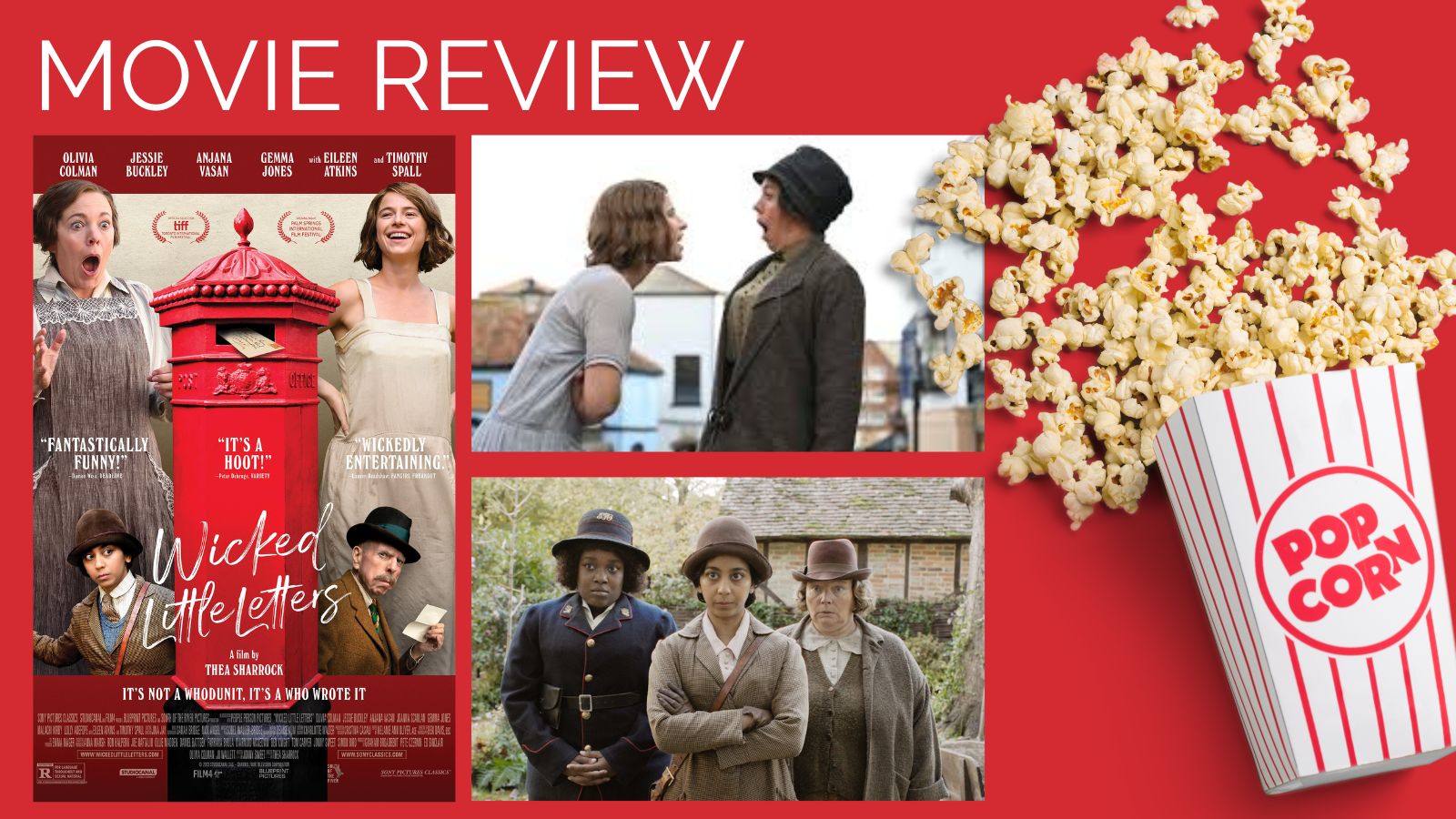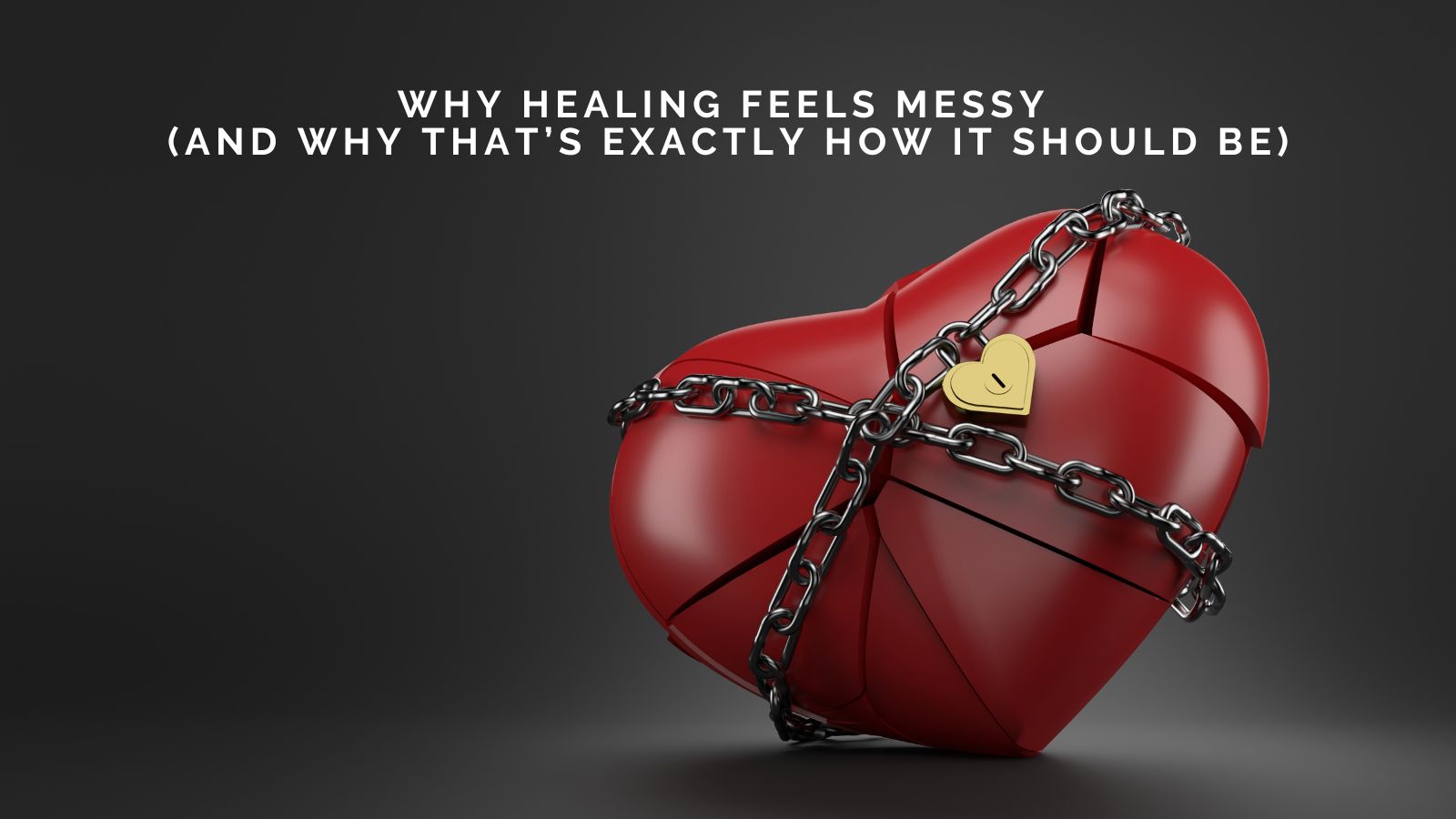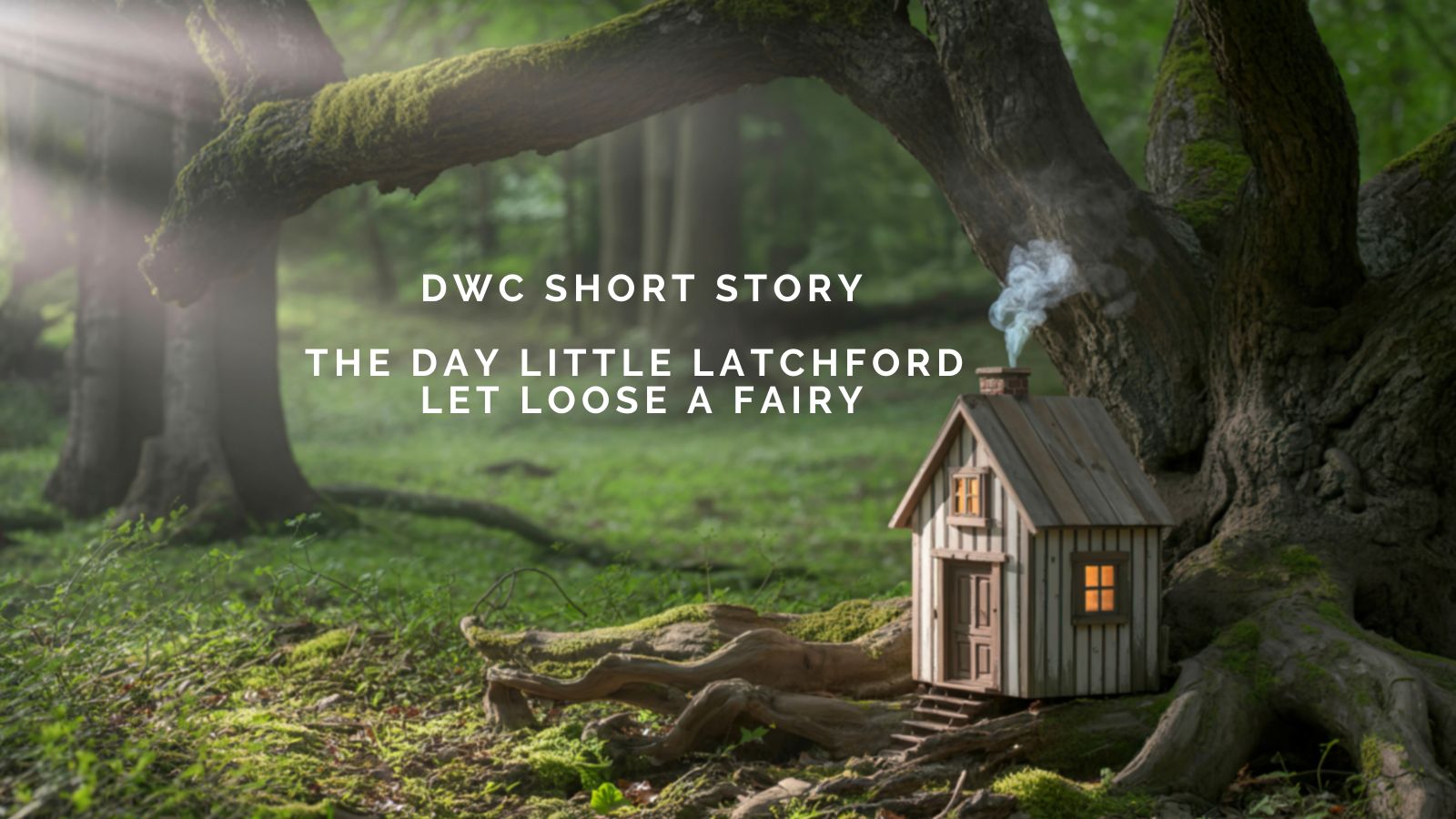
The box had three warnings and I ignored all of them. To be fair, the first was written in a floury scrawl across a bit of masking tape—“DO NOT OPEN”—and everyone knows masking tape is more of a suggestion. The second was a carved banner on the lid in fancy loops: “Bound by cold iron. Keep shut.” The third was the price sticker from the church jumble sale: “50p.” If the Almighty of Little Latchford had truly meant it to stay shut, He wouldn’t have priced it less than a Curly Wurly.
It was the last day of the summer holidays and Mum had given me exactly four pounds and twenty minutes to “have a rummage and then, Tilly, for the love of all things bus timetable, come straight home.” The church hall smelled of damp hymnals and jam that had boiled to the point of theology. Mrs Webb from the Women’s Institute was guarding a table of Victoria sponges like a dragon. Mr Clegg, the verger, had already fallen asleep in a chair. If you’ve never met a dozing verger, imagine a scarecrow that’s eaten its fill and now dreams of lentils.
The box was half-hidden beneath a woolly tea cosy shaped like a chicken. It looked like it had been made from a single piece of wood, the grain running round it like ripples on the pond. Iron staples pinned the corners. The carved banner curled across the top, and on each side there were little images: a thorn, a key, a spiral, a shoe. It fitted into my hands a bit too perfectly, which is exactly the sort of thing that ought to make you put it down and have a biscuit. I paid my fifty pence, slid the box into my tote bag, and legged it home.
Mum was wrestling the hoover in the front room, which meant I had four minutes and forty seconds of unobserved life. I went straight to the shed. Our shed is a museum of things Dad said he’d fix. If you ever need a portable radio from 1998 or a door handle with ambitions, we can help. I shoved aside a tangle of fishing rods and perched on the paint-splattered stool. The box sat on my knees, warm in the way old wood sometimes is. It hummed in my fingers—not noisy, more like the feeling you get when a song is about to reach the good bit.
“Bound by cold iron,” I read under my breath, because it’s rude to ignore instructions completely. The staples were iron, sure enough, and the lid had a lip that wouldn’t quite budge. I used the edge of Dad’s putty knife and the smallest of the iron staples pinged off and landed in the bag of compost. The humming rose from inside the wood, like a sleepy bee discovering the clock’s gone forward. I set the box on the bench. “Right,” I said, to nobody. “Let’s see.”
When the lid came free, the air in the shed went from everyday to early morning on the first day of the world. I know how that sounds. It wasn’t like angels or trumpets. It was more like the smell before rain, and bread just out of the oven, and the odd hum of the fridge when you open it for midnight cheese. A curl of light poured out, greenish-gold like new leaves. It wasn’t bright enough to hurt my eyes, but I blinked the way you do when someone says your name unexpectedly.
She stepped out of the box as if she’d been waiting behind a curtain for someone to remember her cue. She was the size of a jam jar, which I know because her head immediately became level with my jam jars. She had wings, but only one and a half. The right was all veined glass and smoke, the left was ragged, like a torn umbrella. Her dress looked as though it had been made from somewhere that had gone mossy, and she wore an expression I’d only ever seen on Mum when a casserole had committed a personal offence.
“Oh,” I said.
“Oh,” she said back, but hers was the sort of “oh” you use when you find out a shop is closed for lunch until a week next Tuesday.
We stared at each other. The hoover droned. The bee in the corner re-considered its life.
“You’re not supposed to be able to do that,” she said at last, in a voice like a violin tuning up. “Children can’t push cold iron.”
“Perhaps I’m a prodigy,” I said, because when something impossible happens, I often double down on cheek. “Who are you?”
She straightened. “I’m Iris Winterglass of the Willows. I was trapped one hundred years and a day by the lords of your village, and now you have un-trapped me. Congratulations. You’ve made history with a putty knife.”
I blinked. “Trapped? In a box?”
“Don’t repeat the things I’ve said as if they’ll turn into sense on the second go,” Iris said, impatient, but the corner of her mouth twitched. “Who are you?”
“Tilly. Tilly Hart.”
“Hart,” she repeated, tasting it as if it was a new word for custard. She glanced about the shed with the wary curiosity of a cat in a new house. “Is this your whole house?”
“It’s our shed,” I said. “There’s a house attached if you go out the door and take optimism as far as the kitchen.”
“Do mortals still have kitchens?” Iris looked more thoughtful than anyone three inches tall ought to be. “Good. I need tea, and then I need revenge.”
“On who?” It came out too fast.
“The ones who locked me up,” Iris said. “Not the exact ones—they’d be dust under the yew by now—so the ones who carry their names and their guilt. Descendants inherit more than spoons.” She flexed her half wing, winced, and let it droop. “Revenge first, tea after, unless your tea’s stronger than your village, in which case—”
“Hang on,” I said, because even though Iris said not to parrot her, I wasn’t prepared to provide milk and two sugars for a stranger who’d just announced plans to terrorise the parish council. “What did they lock you up for?”
“For being inconvenient,” she said promptly. “For telling truths the men in black coats didn’t want told. For not sitting sweetly on the vicarage windowsill and drying dew with my skirt. For being a fairy in a village that wanted everything labelled and labelled again.” She hovered, and the lone wing flicked like a shiver of lamplight. “Open the door. I’ll need to get my bearings. One of your little lanes will remember the path to the green.”
If we’d had a cat, it would have started yowling at that moment and I would have listened to my better sense. But we are a goldfish sort of house, and the goldfish has never once stopped me from doing something daft.
“Will there be murder?” I asked, aiming for casual and landing somewhere between sick and nosy.
“Do you think I’m a crow in a cloak?” Iris tilted her head. “No murder. Messing. Spoiling. Loss of dignity. An honest fright. That sort of thing. I’ve had a hundred years to plan and I’m excellent at petty.”
“Right.” I opened the shed door.
Little Latchford is a village that pretends nothing ever happens in it. It likes its hedges neat and its scandals historic. We have a green with a maypole that only falls over on even-numbered years. We have a pub called the Hanged Badger where Mr Myers mixes gin with opinions. We have a post office that sells stamps, news, and—if you are especially tragic—a selection of sunscreen that expired statistically.
Iris shot into the daylight. You don’t realise how much sky you have until a fairy takes it personally. For a moment the air trembled, like heat above a road. Then Iris straightened, brushed imaginary dust from her moss, and turned her face to the village as if to say, all right then, let’s see what’s left of you.
“Keep up,” she threw over her shoulder. “I’ll need a mortal to interpret the locals.”
So we set off: a guttering six inches above the verge, an eleven-year-old in trainers with a hole the shape of a geography lesson, and the sort of afternoon you only get when the clouds haven’t decided what they’re doing. We cut down Goose Lane where the elder bushes grow fat with berries that stain dogs. We passed Mrs Webb, who was peering at her tomatoes with more suspicion than most people reserve for burglars. We passed the vicarage, which smelled of damp wood and good intentions. On the green, the parish council had erected a gazebo in the wrong place and were having a meeting about it.
“Ah,” Iris said. “There they are. The names have changed, but the hats are the same shape.”
There were six of them around a folding table. Mr Peabody (descendant of the Reverend Peabody, although he prefers “Pete”) wore a tie both determined and brown. Mrs Grimshaw (granddaughter of the original Mrs Grimshaw who had once run the village by issuing biscuits and notices) had a clipboard and a pen that looked capable of stabbing an era to death. Tom Wren (great-great something of the blacksmith who had driven the first iron staple) looked bored and was texting under the table. A litter bin stood nearby, overflowing with the remains of a recent picnic. A gull, which had no sense of boundaries, was investigating possibilities. A hand-lettered sign read FÊTE THIS SATURDAY. BRING YOUR OWN HAPPINESS.
Iris folded her arms. “Look at them, making rules about where to put shade. That gazebo sat on my box once,” she muttered. “Peabody’s grandfather stacked hymnals on the lid for extra weight. Let’s begin with Mrs Grimshaw. There’s a type of human who thinks a clipboard can keep away magic.”
“Don’t—” I started, and then Iris vanished with a whisper, like a kettle boiling in a different room.
Mrs Grimshaw’s pen refused to write. She shook it; it spattered her blouse. She tried another from her breast pocket; it snapped exactly in half. Her papers fluttered, curled, and arranged themselves into a perfect paper aeroplane which launched and hit Mr Peabody on the nose. Tom Wren’s phone turned itself off with the grave solemnity of a butler resigning. The gull hopped up onto the gazebo table and laughed.
Iris reappeared at my shoulder, eyes bright. “That’s the aperitif.”
“You can’t go around sabotaging people’s stationery,” I hissed.
“Watch me.” She flicked her fingers at the gazebo. All four legs sank three inches into the grass as if suddenly remembering they had roots. The councillors squawked and grabbed. Mr Peabody knocked his tea into his lap and yelped. The gull applauded with both wings.
I felt the giggle bubble in my throat and tried to swallow it back. “He’ll be all right?”
“A mild scald and a lesson about hubris.” Iris’s gaze slid past the table to the old yew that darkened the corner by the church wall. “They buried the first iron there. Cold iron grows cold roots. It’s not a sacred tree anymore; it’s a padlock.”
She darted for the yew and set her hand against the bark. Her face changed. For a heartbeat—two, three—I saw the years fall off everything. The yew wasn’t a grown-up graveyard tree; it was a new thought, a fresh green wick. She drew back with her mouth tight. “They hung a little bell inside it,” she said. “Ring it if the fairy hums.”
I swallowed. “What did you do, Iris? A hundred years ago, I mean.”
“I refused to put my magic into their chores,” she said. “They wanted butter that never turned and a field that grew wheat without resting and a baby that never cried. When I told them gifts have edges, they decided I was the edge. There was a boy, too, little Johnny Keene. He used to leave me thistles because he said they were like hedgehogs wearing birthday hats. He went missing the week they boxed me. I said he’d run away to the river to see the boats, and they said I’d stolen him. I hadn’t. But innocence rarely trumps a committee.”
We both looked at the river. It was the sort of river that did very little on weekdays and then flooded on bank holidays. I judged the distance to the yew. “If you pull the bell out—”
“I won’t cheat,” she said, and to my surprise it wasn’t temper but a sort of politeness. “I’m owed vengeance, but I won’t ruin the tree.” Her eyes sharpened. “Is Tom Wren the blacksmith’s boy?”
“His great-great—I’ve lost count. He runs the garage. There’s a sign that says TYRES WHILE U WAIT which suggests he believes in the letter U.”
“Good. There’ll be iron near him. Iron keeps my wing like this. If I can get into his workshop, I can make it listen.”
“Make iron listen?” I repeated, then shut my mouth because I’d promised myself no parroting.
“It will remember the hand that bent it.” She started for the lane that led to the garage, trailing the smell of elderflower and bonfire. Something pricked inside me. It wasn’t fear—not fully. It was the exact point where excitement meets caution and both start shouting sandwiches of advice.
“What about the others?” I said, hurrying after her. “Mr Peabody and Mrs Grimshaw?”
“Oh, I’ve got plans for them,” Iris said. “Public humiliation, gentle flavour. Don’t look at me like that, mortal child. They owe me a century. If I translate my grievance into false moustaches and wobbly gazebo legs, that’s mercy.”
Tom Wren’s garage was the sort of place where a calendar from 2013 still believed. It smelled of oil and male conversations conducted while looking at a spark plug. Tom himself looked up as we arrived and nodded at me because I once brought him three biscuits for fixing Mum’s wing mirror. He did not notice Iris, who perched on the shelf above the till and examined a coil of wire with the disdain of a princess offered a used umbrella.
“Hullo, Tilly,” Tom said. “You shouldn’t be out on your own. There’s a gull on the green that’s gone funny.”
“I need to look at your… iron,” I said, and then, because that sounded like something you could be arrested for in four counties, I added, “For a school project. History of metal. I’m very advanced.”
“Right.” Tom scratched the back of his head. “You can… look at that brake disc if you like.”
I drifted along the workbenches. Iris moved like a moth around a lamp, drawn and repelled at once. When she touched an old horseshoe that hung by the door, she flinched.
“This one remembers,” she said softly.
“The blacksmith used to curse it,” Tom said, watching me watch the iron. “Granddad said it was bad luck in the forge, but good over a door. We kept it because you don’t throw away the sort of mischief that could come in handy.”
I glanced at Iris. “Can you talk to it?”
“I can bargain.” She put both hands on the horseshoe. The air settled. Even the clock stopped pretending it was serious. Iris’s mouth moved, but I didn’t hear words so much as the sort of meaning you get when you wake knowing you’ve had a dream about rain. Her wings shivered. After a long moment she drew back and ran her thumb over the torn edge of the broken wing. The tear lightened, then held.
“Well?” I asked.
“It won’t hurt me,” she said. “It won’t help me yet. It wants something.”
“What can you give iron?”
“A story,” she said. “Iron’s favourite meal is a story with a nail in it. And an apology.” She glanced at Tom. “He’s got Peabody’s face.”
“Sorry?” Tom said.
“Not you,” Iris said absently. “Your bones.”
I coughed. “Is there anything we can do now—today—to make things slightly less revenge-shaped?”
Iris narrowed her eyes. “Do you apologise when you’re eighteen months old?”
“When I was eighteen months old I apologised to a pigeon. Frequently.”
“Then you’ll understand the locals are not quite there yet.” She reached for the counter. “We start with small precautions. Lend me your mother’s salt.”
“You’re not coming into our kitchen with those plans,” I said. “Mum gets cross if someone puts cumin in the wrong place.”
“If your mother’s kitchen is arranged by spice, she can handle mine.” Iris darted to the doorway. “Come on, Hart. We have until Saturday. The green will be full of villagers braced for joy and cake. That’s when we ring the true bell.”
“You said you wouldn’t pull it out.”
“I won’t. I’ll make it speak so loudly nobody can pretend not to hear it.” She landed on my shoulder with a weight like a handful of coins. “And you, clever girl, will help me make absolutions possible.”
“What if I don’t want to?”
“Then you shouldn’t have opened a box that said don’t,” she said, not unkindly. “We’re in it together now. Handfasted, in the old way.”
“Married?” I squeaked, which is not a word that should ever be used by an eleven-year-old in a garage.
“Bound until the job’s done,” Iris said. “You’re my witness and I’m your consequence.”
All week, Little Latchford went about its business with the deep theatricality of a place determined to act normal. The school reopened; the dinner ladies remembered which of us were traitors to peas. Mr Myers stationed himself at the Hanged Badger and rehearsed opinions about parking. The choir restarted and sang three hymns and then something that wanted to be Mumford & Sons. I tried to do my homework, which had decided suddenly to be about the Tudor navy. Iris sat on my pencil, nibbling the eraser, and told me how ships look from the perspective of the river—to a river, a galleon is a bully in a lace collar.
Each evening we went walking. Iris learned the lanes the way a cat learns the roofs. We left tiny offerings: a thimble of milk on Mrs Grimshaw’s windowsill (which turned to cream and glued her sashes shut), a ribbon on Mr Peabody’s gate (which tied and tied until his compost bin couldn’t be opened), a pinch of salt under the bench where Tom ate his sandwich (which made his crisps stay crunchy even in a downpour, and he smiled despite himself). If this sounds petty, it was. Iris had promised petty. But none of it hurt; it merely unsettled.
“An unsettled human has to decide what to do with the wobble,” Iris said. “If they blame the wobble on somebody else, the wobble grows teeth. If they say, perhaps I have something to learn about biscuits and windows, the wobble becomes a lesson.”
On Friday we went to the church. The yew loomed like a watchman who had forgotten the words but not the tune. Iris cupped her hands and the air in them glowed faintly. From my pocket, I took the smallest iron staple—the one I’d prised from the box—and laid it in her palms.
“This is the bit I pulled,” I said. “I thought you might need it.”
“You’re an honest thief,” she said, and the glow lapped the iron like water around a stone. “It remembers my name.”
“Can I ask something?” I said, because the question had been wriggling like a worm in my brain.
“You’ll ask it anyway,” she said.
“What really happened to Johnny Keene?”
Iris closed her fist around the staple. “He ran away to the river because he’d heard a song and it wouldn’t leave his head until he found the singer. He was halfway to Oxford before a bargeman noticed and brought him back. But he came back two days too late for me. The box was already nailed.”
“And he didn’t say anything?”
“He tried,” she said. “But by then it was a relief to believe I’d been wicked. Humans enjoy a wicked thing they can put a lid on.” She looked up at me, and for the first time I saw she was tired all the way through. “That’s why I won’t harm them. They’d like it too much. It’s easier to be righteous if your enemy is awful.”
Saturday arrived with that particular village energy that smells of sugar, grass, and people pretending they aren’t competing. Stalls lined the green: jars of chutney in the full autumn spectrum, second-hand books that had passed through more hands than a rugby ball, the tombola where every prize was exactly the thing you never knew you always didn’t want. The maypole wore a hat of late flowers. Mr Peabody hovered beside the coconut shy, trying not to look like a coconut. Mrs Grimshaw stood by the cake table like a duchess protecting her lands.
Mum bought three raffle tickets and a pack of napkins. I was allocated to help at the Lucky Dip, which is a large barrel full of sawdust and little parcels that leave your hands smelling like a hamster. Iris hid in my hair and muttered instructions that verged on wicked. I ignored the worst of them.
At two o’clock, the vicar announced the sponge judging. At two-thirty, the Morris dancers jingled heroically. At three, the brass band attempted “Jerusalem” and achieved “ something robust in E flat.” And then, just as the sun found the exact angle to make everybody squint, Iris touched my ear and said, “Now.”
She flew, not high, but with purpose—the way a thrown pebble knows the water is coming. She went to the yew. The tree didn’t move, because trees are old and manners matter, but the light under its leaves went dim as a thought you haven’t had yet. Iris placed the iron staple at the base of the trunk and tapped it three times. The sound went up through the bark and into the bell that lived in the wood.
The bell rang.
If you’ve never heard a bell inside a tree, imagine a chime made of sap and patience. It was not loud, but it was the sort of sound that makes other sounds remember they’re tourists. The brass band slid to a halt. The Morris dancers’ sticks drooped, embarrassed. A hush fell that wasn’t scared; it was curious. Even the babies paused as if someone had offered the air a biscuit.
Iris stood in the dapple. She was small and unmistakable. The broken wing caught the light and made a shard of it. She lifted her chin and spoke, and I don’t know if everyone heard words or simply felt the sense, the way you feel thunder before the rain arrives.
“A hundred years ago,” she said, “you put a thing you didn’t understand into a box. You told yourselves it was dangerous because it wouldn’t say yes. You told yourselves it had stolen something that wanted to be stolen by the river. You hammered the lid and the bell and called it safety. The lid lifted today because a child has less to defend and more to ask. I have come for my revenge, which is that I will tell the truth and you will have to hear it.”
Mrs Grimshaw’s mouth opened, closed, and opened again like a library fish. Mr Peabody took a step forward and then back, as if caught by his own tie. Tom Wren folded his arms to keep them from doing something useful.
“The Reverend Peabody’s sermon that week,” Iris went on, “spoke of order. The blacksmith’s hammer rang out a fear that wasn’t his own. Mrs Grimshaw wrote a list of reasons why the box must be heavier, and every reason was a memory she did not want to have, so she put them on me.”
She turned to face the crowd fully. “I am not your bin. I am not your broom. I am not your wicked thing you can pin into a dark. I am Iris Winterglass of the Willows and I am owed an apology and a plate of cake.”
You could feel the village blink.
Mrs Grimshaw’s face, which had spent seventy years being steward to the rule that others can’t be trusted to do things properly, softened in the middle. Her clipboard dipped. She looked down at it as if it were a small, stubborn pet and then put it on the grass.
“I’m sorry,” she said. It came out like a stitch being taken out, careful and painful. “My gran… I grew up with… she said you’d pinched the boy and I… I believed her.” She lifted her head. “Johnny Keene is my great-uncle. He lives in Portsmouth. He sends postcards of ships at Christmas. Mum keeps them behind the clock. We never talk about him.”
Mr Peabody rubbed his palms on his trousers. “The bell in the tree… my grandfather used to tell me it was for birds. He lied to make it a nicer lie.” His mouth tilted. “I’m sorry.”
Tom Wren scowled at his shoes. “My lot—” He stopped. His voice changed shape. “The way we tell it, Great-Great Tom kept the village safe. He hammered the iron because he was reliable. That’s our… lineage. Reliable. I never thought about who else has to pay for us to be reliable. Sorry.” He said it like someone trying out a word and discovering it suited them.
Around the green, people breathed in and then out as if they’d been waiting for permission. The vicar said something about compassion that, for once, didn’t sound as if it came from a book. The gull on the bin nodded. Mrs Webb stepped forward, cut the largest slice of Victoria sponge with the care of a surgeon, and held the plate up towards the yew.
Iris raised an eyebrow at me. “Do I eat mortal wheat under a mortal tree?”
“Eat the jam side first,” I said. “It is a universal law.”
She landed on the plate and tore off a piece as grand as an emperor conquering a pudding. The band, because they didn’t know what else to do, started to play again, softly, the sort of music that doesn’t mind if someone talks over it. You could feel the village deciding not to be frightened. Or perhaps deciding to be frightened in a better direction.
The apology did not un-tangle a hundred years like string. The bell rang once, and then its note became a memory we could keep. People drifted back to the stalls with the seriousness of the newly reprieved. A child asked me if the fairy lived in my pocket. Mr Peabody stopped trying not to look like a coconut and instead had a conversation with Tom Wren that didn’t involve betweens or blame. Mrs Grimshaw, liberated from clipboard, bought a jar of chutney with a gleefulness that suggested somebody was getting a surprise ploughman’s.
Iris ate cake. She ate it as if cake was a riddle you could solve by chewing. When she finished, she licked jam off her fingers and came to sit on my shoulder.
“Well,” she said. “That was messy, and not as funny as false moustaches, but effective.”
“You were brilliant,” I said.
“Of course,” she said, and then she softened. “And you were brave. The opening of the box was a foolish courage, but this—this was the good sort.”
“Are you going to leave now?” It came out before I could catch it. The thought of the shed without her suddenness made my stomach feel like laundry.
“Do you want me to?”
“I don’t know,” I said. “Yes. No. Perhaps. A bit.”
“Very mortal answer,” she said approvingly. “I’ll stay a while. Your village still has places that need waking up. Your mother’s spice cupboard is in an incorrect order and your father’s radios have grievances. And I’ve a wing to coax.” She flexed the broken one. You could see where the tear had begun to heal—not much, not magic, but honest.
“What do you need?” I asked.
“A story,” she said. “A story that’s true and told aloud. A story that says, we did a bad thing, and now we’re going to make biscuits, and would you like to stay for tea.” She smirked. “Also honey. Honey does more for wings than anyone would guess.”
We walked home slowly, because everything felt new, as it always does when a village has done something brave and must now pretend it isn’t exhausted. Mum met us at the gate with a look that had been tuned by years of me arriving late and muddy, but which now shifted to something softer that said she’d heard a bell too.
“You’re all right,” she said.
“Yes,” I said, which was both a reply and a plan.
That evening, after the washing-up, we went to the shed. Iris hopped onto the workbench. The box sat where I’d left it, lid ajar, iron missing from one corner. I touched the carved banner with one finger. The wood felt relieved, which is an odd thing for wood to feel, but there we are.
“I won’t go back in,” Iris said, reading my mind. “But it can be repurposed. Witches say the best use of a binding box is to keep biscuits.”
“We’re not witches,” I said.
“Not yet,” she said with a grin. “Leave me for a bit. I’ve got to speak to the hinge.”
I went into the kitchen and made tea because I’m a British child and we are built for it. I found Mum looking out of the window at the darkening yew. She put her arm round my waist and squeezed the sort of squeeze that lets you lean into it without making a big thing of it.
“You heard the bell?” I asked.
She nodded. “And the bit where you’re not supposed to open boxes with warnings?”
I put a hand on my heart. “I will, in future, assume that masking tape means business.”
She kissed the top of my head. “You’re a good girl,” she said. “You’re a handful of trouble and a good girl.”
Back in the shed, Iris sat with the open box in her lap, humming something that sounded like hard work becoming soft. The broken wing trembled and relaxed.
“What will you do if someone lies, now?” I asked, because revenge hadn’t quite let go of my hand.
“I’ve revised my policy,” she said. “If someone lies about little things, their socks won’t match for a week. If someone lies about big things, every time they open their mouth they’ll hiccup a nettle.”
“A nettle?” I said.
“Just a ghost of one,” she said. “Enough to sting, not enough to scar. Everyone should have a chance to be better without having to wear an eye patch.” She hopped onto my palm. “Besides, I’ve discovered that telling the truth loudly at exactly the right moment is more satisfying than a year of having the bins tip themselves over.”
“Will you tell me more about when you were free?” I said. “Before the box?”
“I will,” she said. “I’ll tell you about the time I made the moon cough and the afternoon I taught a stoat to read. You’ll tell me about school and the labyrinth of a dinner lady’s heart.” She tilted her head. “One thing more.”
“Yes?”
“You’re Hart,” she said, rolling the word again. “There was a Tamsin Hart a hundred years ago who used to leave me a saucer of rainwater she’d labelled ‘sky tea’. She wrote a petition to the vicar saying I should be tried by jury of willowherbs. The grown-ups burned it. She married a baker and moved away to Thatcham. Are you her kin?”
“Mum says we had a Tamsin somewhere back there,” I said. “She had a fondness for wildflowers and unsuitable shoes.”
“Good woman,” Iris said. “We’ll keep her in the story.”
We did keep her. We kept Johnny Keene, who sent a postcard that Christmas with a drawing of a very bad boat on it and a note that said, “I never ran from you, Iris. I ran towards the thing singing.” We kept the bell in the yew, which now rang only when we baked, which meant Sundays sounded like a cathedral of buns. We kept Mrs Grimshaw’s clipboard, which acquired stickers, which is how you know a person is trying. We kept Mr Peabody’s tie, which loosened. We kept Tom Wren’s horseshoe, which moved from above the door to the kitchen where it could hear stories better.
And sometimes, on late afternoons when the sky remembered how to be gold, Iris and I walked down to the river. She’d alight on the rails of the bridge, and we’d watch the water doing its job. We’d talk about small revenges and large mercies, and which you should choose if you have the option. We’d talk about what you put in a box and what you leave to run.
On my twelfth birthday, Iris gave me a tiny key carved from hawthorn. “It opens nothing,” she said. “That’s the trick. You put it in your pocket and remember there’s still something you can unlock by asking the right question.”
“And the box?” I said.
She patted it. It lived on our dresser now, full of chocolate biscuits and the odd crochet hook. We’d left the carved banner as it was. “Bound by cold iron. Keep shut.” I had added, with a felt-tip, beneath the fancy loops: “Unless you plan to be kind.”
“Tea?” I said.
“Always,” Iris said. “And then mischief. We are due to rearrange the spices.”
“If you put the cumin with the cinnamon again, Mum will exile you.”
“Exile is a strong word,” Iris said, but she looked a tiny bit delighted to be in the sort of danger families offer. She flew up to the top of the dresser, perched on the picture frame with me in it on sports day, and regarded the kitchen with the sort of proprietary fondness that looks a lot like love if you squint. “Little Latchford needed a nudge. You provided it. I brought the bell.”
“And the nettles,” I said.
“And the nettles,” she agreed solemnly. “But only for the worst of us. The rest only need cake.”
We had tea. The goldfish stared the way goldfish do, which is to say, without reproach. The bell in the yew chimed once, just enough to make the spoons feel like they’d accomplished something. Outside, the gull screamed on the green, which Iris said was his way of working on his singing. Inside, we arranged the spices exactly wrong and then, because revenge can be sweet as well as spiky, we put them back exactly right.
_(31).jpg)


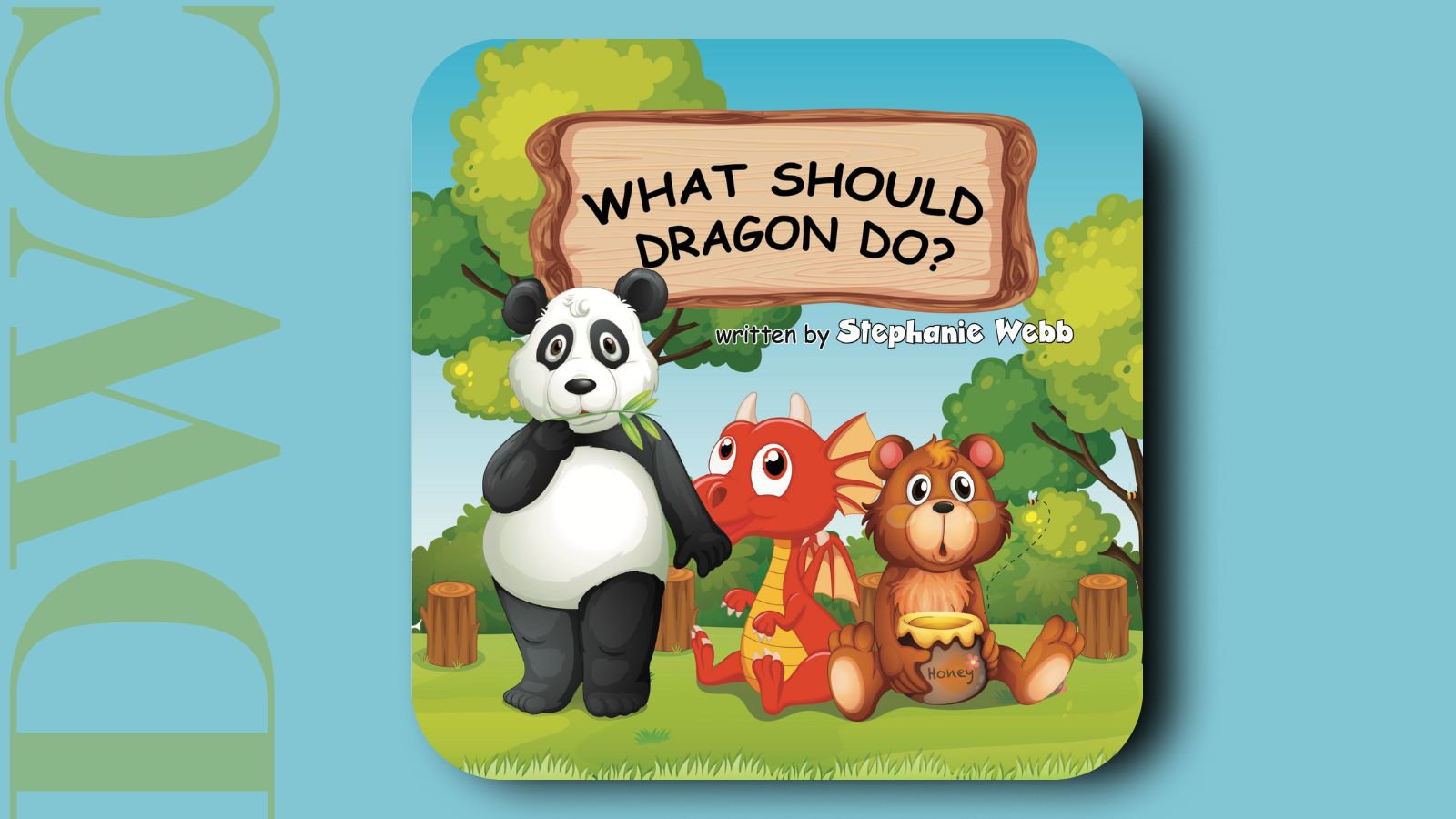


-2.jpg)

